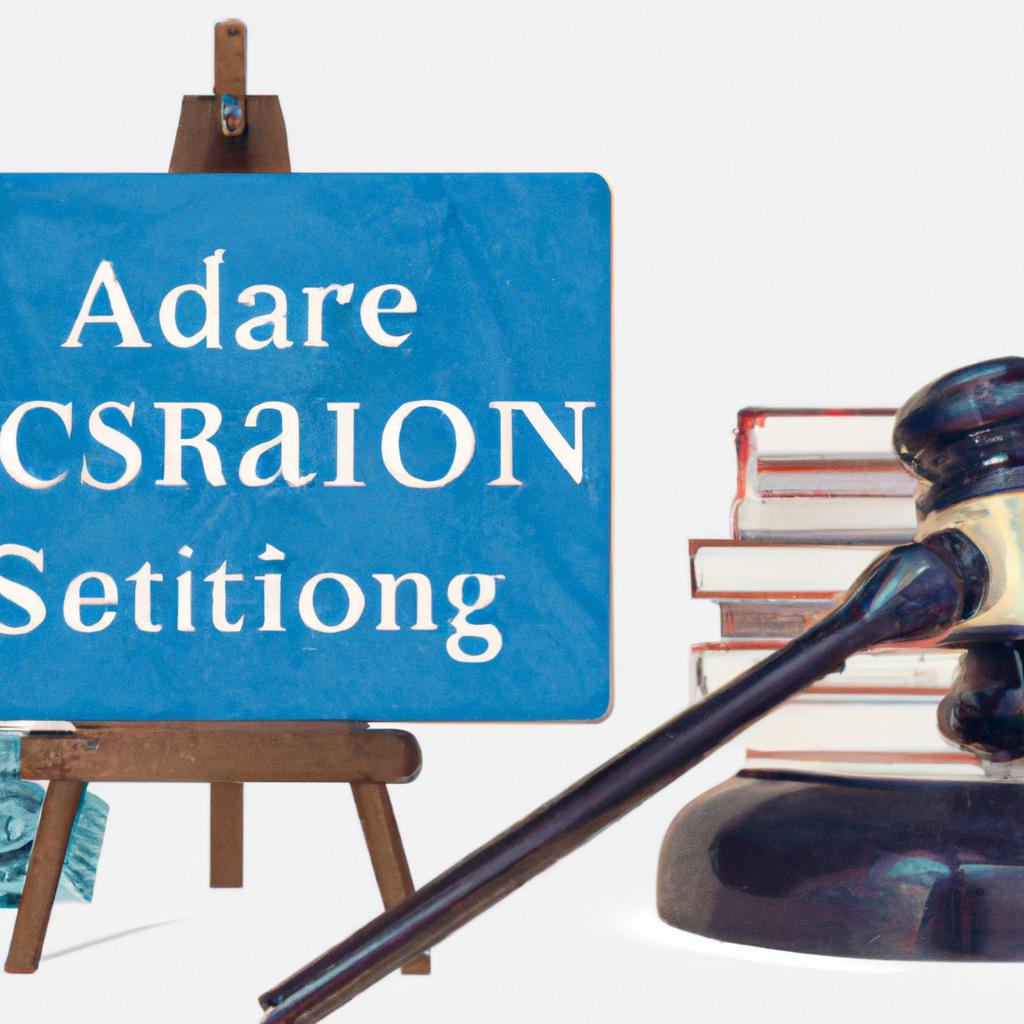Welcome to the world of estate auctions, where valuable treasures from the past find new homes amongst eager bidders. As seasoned professionals in the field of estate planning at Morgan Legal Group in New York City, we understand the intricate process of liquidating assets through auctions with precision and expertise. Join us as we delve into the intricate world of estate auctions, where every item tells a story and every bid holds the promise of a new beginning.
Understanding the Purpose and Process of Estate Auctions
Estate auctions are a crucial part of the probate process, allowing for the sale of assets to settle debts and distribute inheritance to beneficiaries. The purpose of an estate auction is to liquidate assets such as real estate, personal property, and valuable collectibles to maximize the value of the estate. By selling these items at auction, the executor of the estate can ensure that debts are paid off and that beneficiaries receive their share of the estate.
The process of estate auctions involves several key steps, including inventorying assets, appraising their value, advertising the auction to potential buyers, and conducting the auction itself. It is essential to work with experienced auctioneers and appraisers to ensure a smooth and successful auction process. Additionally, estate auctions are often governed by state laws and regulations, so it is vital to seek legal counsel to navigate the complexities of the auction process and ensure that all legal requirements are met.

Maximizing Profits Through Strategic Estate Auction Planning
In today’s ever-evolving market, estate auction planning has become a crucial tool for maximizing profits and ensuring a smooth transition of assets. By strategically planning your estate auction, you can effectively showcase valuable items, attract serious buyers, and ultimately increase your bottom line. At Morgan Legal Group, we understand the complexities of estate planning and the importance of a well-executed auction strategy.
Our team of experienced professionals will work closely with you to identify key assets, set realistic goals, and develop a comprehensive auction plan. Through targeted marketing, careful selection of auction items, and expert negotiation skills, we can help you achieve the maximum value for your estate. Trust Morgan Legal Group to guide you through the estate auction process and secure the best possible outcome for your assets.

Key Considerations for Executors When Organizing Estate Auctions
When it comes to organizing estate auctions as an executor, there are several key considerations that must be taken into account to ensure a smooth and successful process. One of the most important factors to consider is the valuation of the assets that will be included in the auction. It is crucial to accurately assess the value of each item to set appropriate starting prices and reserve prices.
Another important consideration is selecting a reputable auction house to work with. Choosing a trusted auctioneer with experience in handling estate auctions can help ensure that the process is conducted professionally and ethically. Additionally, it is essential to thoroughly research and understand the legal requirements and regulations surrounding estate auctions to avoid any potential issues or complications.

Expert Tips for Successfully Navigating the Estate Auction Market
When it comes to navigating the estate auction market, there are several expert tips that can help ensure a successful outcome for both buyers and sellers. One key piece of advice is to do your research before attending an auction. This includes researching the items up for bid, setting a budget, and familiarizing yourself with the auction process. By being prepared, you can make informed decisions and avoid overspending on items that may not hold significant value.
Another important tip is to network with other estate auction professionals. Building relationships with auctioneers, appraisers, and collectors can provide valuable insights and opportunities within the market. These connections can help you stay informed about upcoming auctions, find rare and valuable items, and even negotiate better deals. By leveraging your network, you can gain a competitive edge in the estate auction market and increase your chances of success.
Q&A
Q: What is an estate auction?
A: An estate auction is a type of auction that involves the sale of items from someone’s estate, typically after their passing.
Q: What types of items are typically sold at estate auctions?
A: Items sold at estate auctions can vary widely, but common items include furniture, antiques, artwork, collectibles, jewelry, and household items.
Q: How are estate auctions different from regular auctions?
A: Estate auctions differ from regular auctions in that the items being sold come from a single estate, often giving buyers the opportunity to find unique and one-of-a-kind items.
Q: What are the benefits of attending an estate auction?
A: Attending an estate auction can be a great way to find rare and valuable items at a fraction of the retail price. It also allows buyers to see a wide variety of items in one location.
Q: How can someone participate in an estate auction?
A: To participate in an estate auction, interested buyers typically need to register for the auction beforehand and be prepared to bid on items either in person or online.
Q: Are estate auctions open to the public?
A: Yes, estate auctions are typically open to the public, allowing anyone interested in the items being sold to attend and participate in the auction.
The Way Forward
As the gavel falls and bids are finalized, the estate auction comes to a close, but the memories and treasures unearthed will live on. Whether you are a seasoned collector or a curious bystander, there is always something special waiting to be discovered at an estate auction. So, next time you see a sign for one, don’t hesitate to stop and explore the world of history and luxury that awaits inside. Happy bidding!
 Estate Auctions: A Comprehensive Guide
Estate Auctions: A Comprehensive Guide
If you’re looking to buy or sell a property, have you considered an estate auction? It’s a streamlined and efficient process that can benefit both buyers and sellers in the real estate market. In this comprehensive guide, we’ll delve into the ins and outs of estate auctions, their benefits, and practical tips for a smooth and successful auction experience.
What is an Estate Auction?
An estate auction, also known as a property auction or real estate auction, is a public sale where a property or estate is sold to the highest bidder. The property can range from a single-family home to commercial real estate, and may also include personal belongings and assets within the property.
This type of auction is typically used to sell a property quickly and efficiently, rather than going through the traditional process of listing it with a real estate agent and waiting for a buyer to make an offer. The auction process eliminates the need for negotiations and can result in a faster sale.
How Does an Estate Auction Work?
Before the auction takes place, a date and location will be determined, and the property will be appraised for its value. The property will also be marketed to potential buyers to generate interest and attendance at the auction.
On the day of the auction, interested buyers will gather at the determined location and place their bids on the property. The highest bidder will then become the new owner of the property. In some cases, the seller may set a reserve price, which is the minimum amount they are willing to accept for the property. If the bidding does not meet the reserve price, the property may not be sold.
Benefits of an Estate Auction
1. Speedy Sale
One of the main benefits of an estate auction is the speed at which a property can be sold. Unlike the traditional method of listing a property, an auction can typically be completed within a matter of weeks rather than months. This is great for sellers who are looking to quickly offload a property for personal or financial reasons.
2. Competitive Bidding
Since the property is sold to the highest bidder, an estate auction can often result in a higher selling price compared to a traditional sale. With multiple interested buyers vying for the property, the competition can drive up the price and potentially result in a better deal for the seller.
For buyers, the competitive nature of an auction can also be an advantage. If the bidding starts low, they may be able to secure a property for a lower price than they would in a traditional sale.
3. Transparency
An estate auction is a transparent process, as all bids are placed in public, and the seller can see exactly how much each buyer is willing to pay for the property. This eliminates the need for back-and-forth negotiations and can provide a sense of clarity for both parties.
Practical Tips for a Successful Estate Auction
1. Do Your Research
Before attending an estate auction, it’s essential to do your due diligence. This includes researching the property, its location, and its potential value. It’s also a good idea to attend a few auctions as an observer to familiarize yourself with the process and gain a better understanding of how bidding works.
2. Set a Budget
It’s important to set a budget and stick to it when attending an estate auction. With the competitive nature of the bidding, it can be easy to get swept up in the moment and overspend. Be sure to also factor in any additional costs such as repairs, renovations, or closing fees.
3. Get a Home Inspection
Unlike a traditional real estate sale, an estate auction may not include a home inspection. As a buyer, it’s crucial to get one done before the auction to uncover any potential issues or repairs that may be needed. This will also help you determine the true value of the property and avoid any surprises after the purchase.
Case Study: The Success of an Estate Auction
In 2019, a 3-bedroom, 2-bathroom property in Bel Air, California went to auction with a starting bid of $900,000. The property was previously listed for over a year with no offers, but at the auction, it ended up selling for $1.86 million, nearly double the original listing price.
The seller was happy with the speedy sale and the price they received, while the buyer was able to get a great deal on a prime property in a sought-after location. This is just one example of the success that can be achieved through an estate auction.
First-Hand Experience: A Seller’s Perspective
John and Sarah had recently inherited a property from a relative and were looking to sell it quickly. They decided to list it through a traditional real estate agent but were met with months of little interest and lowball offers.
Desperate to sell, they turned to an estate auction and were amazed at the results. The property was appraised for $500,000, and the auction resulted in a sale price of $600,000. Not only did they sell the property within a few weeks, but they also received a higher price than they initially expected.
Final Thoughts
An estate auction can be a beneficial and efficient way to sell or buy a property. With its time-saving process, competitive bidding, and transparency, it’s no wonder that many sellers and buyers are turning to this method in the real estate market. Just remember to do your research, set a budget, and consider hiring professionals such as auctioneers and home inspectors to make the process smooth and successful.


